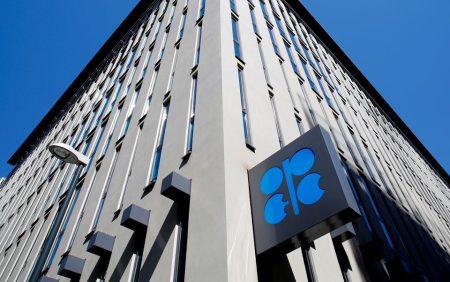 09 February 2014, Lagos – Fears were raised at the weekend that the current bottlenecks faced by fuel importers at the point of products discharge at the port may lead to fuel crisis in days ahead.
09 February 2014, Lagos – Fears were raised at the weekend that the current bottlenecks faced by fuel importers at the point of products discharge at the port may lead to fuel crisis in days ahead.
The development coincided with the warning of Major Oil Marketers Association of Nigeria (MOMAN) that the failure of the Ministry of Petroleum Resources to release the first quarter 2014 fuel import allocation to the Oil Marketing and Trading (OM & T) companies and other importers of petroleum products has raised the spectre of fuel shortage as no fresh import is being made.
The new directive from the navy is said to have created a situation where a number of fuel laden vessels are kept waiting at the port thereby incurring demurrage with serious financial implications to the importers.
A highly placed source told THISDAY at the weekend that one of the new measures which fuel importers are grappling with is the directive that signals should come from the naval headquarters in Abuja before any ship-to-ship transfer or discharge of fuel product could begin. However, operators feared this directive would lead to limited supply of products to the market.
It was gathered that before now, the Petroleum and Products Marketing Company (PPMC) was allowed to conduct ship to ship transfers and discharge operations based on the acknowledged copy of importers’ application.
“For us to wait until the signal arrives from Abuja and get communicated to us may lead to fuel scarcity in the short term,” the marketer disclosed.
The source, pointed out that the bureaucracy is already affecting fuel discharge at the ports, pointing out that, “for now Torm Republican is waiting for naval signal and has not commenced discharge in Folawiyo. Belisaire is waiting for naval signal. Princess Oge’s Ship to Ship transfer of oil with Energy Centurion is waiting for naval signal. Cora A ship-to ship discharge with Conger is waiting for signal.” He is worried that other vessels will suffer the same delay. This is a direct invitation to fuel shortages nationwide,” the source warned.
But the spokesman of the Western Naval Command, Apapa, Lt. Commander Way Olabisi, told THISDAY at the weekend that the Navy did not delay the clearance of any cargo.
“It is not true at all. Whoever is making such complaints is not saying the truth at all. You should ask the person if his papers are correct. Once your papers are correct, the Navy does not delay clearance because we know the importance of petroleum products,” he said.
When asked how many days it takes the Navy to clear a vessel of petroleum products, Olabisi said “I may not be able to comment on the procedure for clearance because I am not at the Beecroft but anybody, who is complaining is not saying the truth.”
Also spokesman of the Apapa Area 1 of the Nigerian Customs Service, Mr. Emmanuel Ekpan, however, said by law, the command did not receive imported petroleum products.
“Unfortunately, we don’t receive petroleum products in Apapa Command. Petroleum products go to Lily Pond Command. So, I will not comment on issue I don’t know,” he said.
THISDAY also gathered that the marketers are also concerned over the current high cost of petroleum products at the international market, which was caused by winter.
With the weather increasingly becoming the driver of crude oil prices, the current cold weather in the United States had resulted to a high demand for heating oil.
This development, according to the marketers, has resulted in the high cost of crude oil as refineries’ demand for crude rises to meet the increasing demand for heating oil.
To cushion the effects of the high costs of imported products, it was gathered at the weekend that some marketers were clamouring for a review of the PPPRA pricing template because they said the existing template no longer guarantees returns on investments.
“Some of the marketers wanted the template reviewed because of the winter but some argue that even if the PPPRA agrees to review the template in the winter, what will happen in the summer when the prices come down? Will the marketers pay back the excess? The solution is for everybody to rely on PPMC for products,” said one of the marketers on condition of anonymity.
It was learnt that six weeks into the first quarter of 2014, the Minister of Petroleum Resources, Mrs. Diezani Alison-Madueke, was yet to approve the applications for fuel import allocations submitted by the marketers, which were on her table since last year.
With this development, it was learnt that virtually all the private importers have exhausted their allocations for the fourth quarter of 2013 and are currently relying on imported cargoes by the Pipeline Products and Marketing Company (PPMC), a subsidiary of the Nigerian National Petroleum Corporation (NNPC), which normally receives over 60 per cent of fuel imports allocations in every quarter.
Executive Secretary, Major Marketers Association of Nigeria (MOMAN) told THISDAY that no marketer is importing for now since the appropriate authorities have not given a go ahead order to that respect.
According to him, “any marketer that places order for fuel now does so at his peril because nobody will pay any claim on it.”
The ex-depot price of Premium Motor Spirit (PMS), otherwise called petrol has remained at between N91 and N91.50 per litre as against the PPPRA’s recommended official price of N87.60 as a result of the tightening supply.
Fresh facts have also emerged that the non-release of the first quarter 2014 import allocation is part of the measures to control the rising subsidy claims by the marketers.
“They are looking at the financial implication on subsidy payments because three batches of subsidy claims have been verified since last year but are yet to be paid,” said one of the affected marketers.
He also said the usual practice of paying subsidy claims after verification had also been abolished.
According to him, the approval of the Minister of Finance and the Coordinating Minister for the Economy is also required after claims have been verified.
With the non-release of their import allocation and the delay in the processing and payment of their outstanding subsidy claims, most of the marketers, it was learnt, are now relying on the NNPC for imported products.
Some of the marketers told THISDAY that the Petroleum Products Pricing Regulatory Agency (PPPRA) would not process their claims if they imported products with the anticipation that the approval would come later.
Executive Secretary of PPPRA, Mr. Reginald Stanley, did not pick calls to his phone, neither did he acknowledge a text message sent to him.
– This Day



